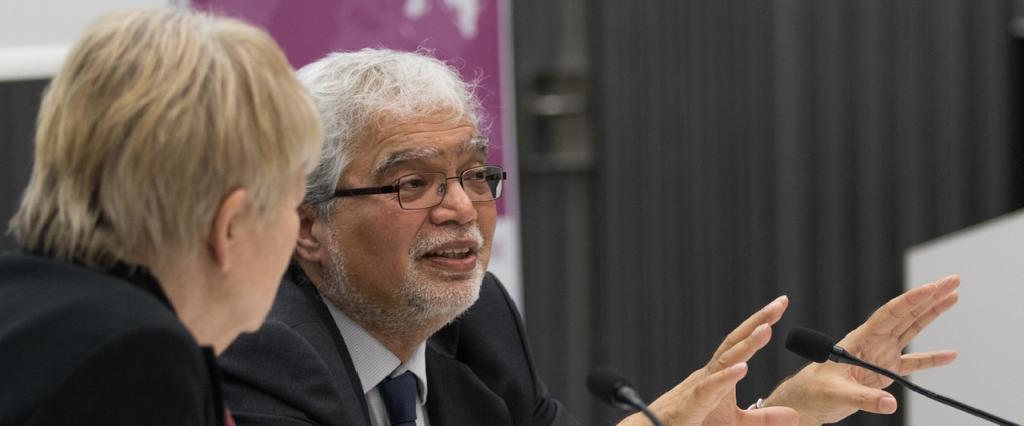The first-ever World Humanitarian Summit will take place in Instanbul on 23-24 May 2016, and it will engage actors beyond the United Nations and countries. “It is a people’s summit” rejoiced Mukesh Kapila, Special Adviser to the World Humanitarian Summit, invited by the Global Health Centre for a dialogue session on 26 February 2016 – but immediately warning that by consequence “we will get the summit we deserve”. Some of the most pressing and controversial issues might still be avoided, or only partially addressed. Professor Kapila identified three main challenges related to the current humanitarian system.
First of all, there has been a “degradation of standards” in humanitarian work. The linkage between humanitarian and security issues contributed to this erosion, while at the same time nourishing distrust in humanitarian actors. Attacks on aid workers are one of the manifestations of this phenomenon. However, for Professor Kapila it is important that the humanitarian system is built on a holistic view, as aid workers cannot be dissociated from the social environment in which they operate.
Secondly, the current system is characterised by a concentration of powers that can undermine its credibility, as humanitarian actors themselves attest the needs, take the necessary actions to meet them, and assess the results. Professor Kapila stressed that de-centralisation of power and accountability at the local level are critical in this regard. As “all global issues are local issues”, there is a need for a better link between the global and the local level, in order to ensure accountability to the people directly affected by humanitarian work.
Thirdly, professionalisation and technocratisation can be seen negatively in terms of transforming humanitarian action into a business-like activity. In this regard, the World Humanitarian Summit can contribute to giving new impetus to a people-centred approach and reinforcing the universality of humanitarian principles.
Considering these and other challenges, the Summit will not be the end of a process, but only the beginning of a new chapter, providing an enabling environment for innovative ideas and solutions. Health professionals also need to get involved, as the humanitarian system cannot be fit for purpose without also integrating new ways of working with health actors. Inaction is not an option, as the health and well-being of millions of people in disaster and conflict situation are at stake. With the words of Professor Kapila “we need to be ambitious and get our hands dirty”, starting in Geneva.
Further information
A conversation with Mukesh Kapila, Special Adviser at the World Humanitarian Summit


